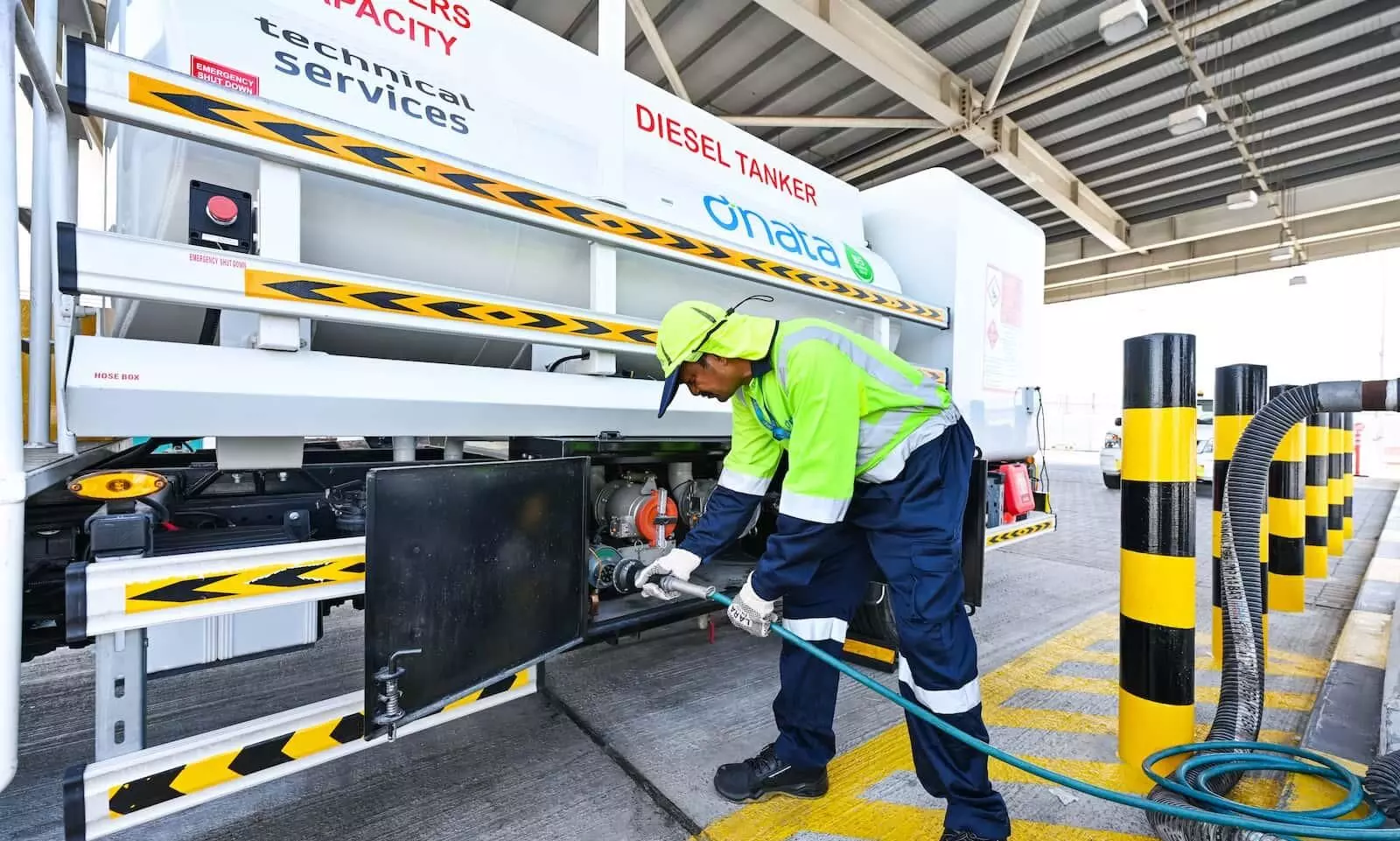
dnata reduces carbon footprint with transition to biodiesel in UAE
Partnership with Dubai Airports and ENOC introduces biodiesel as exclusive fuel for all non-electric vehicles

dnata, a leading global air and travel services provider, announced a major milestone in its environmental sustainability journey - all non-electric airside vehicles and ground support equipment (GSE) are now operating exclusively on a biodiesel blend at its biggest operational hub in Dubai.
The step, taken in partnership with Dubai Airports and the Emirates National Oil Company Group (ENOC), is projected to cut CO₂ equivalent emissions by over 3,500 tonnes annually over the lifecycle of the fuel consumed by dnata’s fleet. This is equivalent to over 21 million kilometres driven by an average diesel-powered car, says an official release.
"The initiative has been gradually rolled out across dnata’s extensive ground handling and cargo operations at the two Dubai airports, Dubai International (DXB) and Al Maktoum - Dubai World Central (DWC). It involves a total of 2,500 vehicles, which support the safe and timely operations of over 220,000 flights annually."
Steve Allen, CEO, dnata Group says: “Our latest initiative to switch all our non-electric airside vehicles to biodiesel in Dubai is a big step forward in our decarbonisation journey. It demonstrates our dedication to cutting emissions, a core part of our environmental strategy, while maintaining the highest level of quality and safety across our operations.
"This achievement wouldn’t be possible without the strong collaboration with Dubai Airports and ENOC, who share our commitment to contributing to the UAE Government’s Net Zero 2050 strategic initiative. We look forward to continuing our partnership to further reduce our environmental footprint and make a positive impact on the aviation industry.”
Paul Griffiths, CEO, Dubai Airports adds: “Sustainability in aviation requires everyone to pitch in, and as the airport operator, we're committed to driving change. Our partnership with dnata and ENOC to introduce biodiesel highlights how collaboration can lead to real progress. While sector-wide solutions are crucial, airports must also score quick wins on the ground.
"This shift will benefit all operators of vehicles and equipment operating airside by replacing traditional diesel with a cleaner alternative. Given the significant size of dnata’s fleet both at DXB and DWC, we know this project is vital for a broader sustainable GSE strategy, and we're proud to contribute to reducing dnata’s emissions and setting a new standard for the aviation industry.”
Saif Humaid Al Falasi, Group CEO, ENOC: “We are delighted to continue our ongoing cooperation with dnata by delivering biodiesel to their airside fleet and GSE. This partnership underscores ENOC Group’s commitment to expedite the UAE’s transition to clean and sustainable energy sources under the National Policy on Biofuels. We look forward to enabling clean energy alternatives to further diversify the national energy mix.”
dnata's fleet strategy commits to phasing out diesel-operated engines and switching to hybrid, electric or hydrogen wherever airports have provided the necessary infrastructure. As a result of its investments in recent years, 65 percent of dnata’s fleet is now electric in the Netherlands, 44 percent in Italy, 40 percent in the U.K. and 39 percent in Switzerland, the release added.
"dnata also maintains a strong focus on minimising fuel consumption. It monitors the consumption of fuel across its fleet of GSE using vehicle tracking management systems; conducts logistics mapping exercises to ensure minimal distances are travelled airside; and optimises shifts and parking slots to avoid excessive fuel burn."
In September 2023, dnata became the first combined air services provider to receive the International Air Transport Association (IATA) environmental management certification as a recognition of its commitment to sustainability across its diverse portfolio of businesses in the United Arab Emirates (UAE), the release added.

